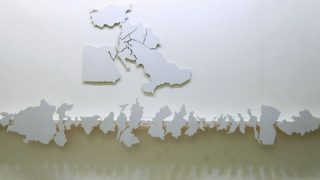The annunciation of a deal, reached between the British government and the Bahraini regime to establish a British naval base in Bahrain to “combat threats that face the region,” struck many by surprise. Accompanied by considerable media coverage, the deal was met with protests in Bahrain, with demonstrators carrying signs stating that the deal is a confirmation of the “return of colonialism to the region.” Protestors also described the deal is “part of the reward received by the UK for its diplomatic support for Bahrain and its silence over the Bahraini regime’shuman rights violations.” Bahraini officials, meanwhile, reiterated that opening the British permanent naval base is a procedure that affirms “the sovereignty of the Bahraini government and its ability to cooperate with other states to serve the national interest.” Media reports claimed that according to the deal, the Bahraini government will pay the costs of opening and equipping the base. Reports concluded that the deal is a manifestation of the mistrust of GCC states in the United States as a guarantee of their security.
English
New British Military Bases in the Gulf

Articles from UK
The Sykes-Picot agreements – phase two of the partition process
Exactly a hundred years ago, in 1916, expecting the imminent collapse of the Ottoman Empire, and in order to expand their spheres of influence in the Middle East, the United...
The McMahon-Hussein correspondence: phase one of the partition process
“because it marches with our immediate aims, the break up of the Islamic 'bloc' and the defeat and disruption of the Ottoman Empire, and because the states [Sharif Hussein] would...
From the same author
Invasion as Investment Opportunity: Emirati Capital Follows Its Troops into Yemen
For the clever Sheikhs who run the United Arab Emirates, jumping headfirst into Saudi Arabia’s ill-considered invasion of Yemen was clearly a business decision, writes Abdelhadi Khalaf.
Palaces Built on Shifting Sand
Unlike the nominal republics which surround them, all rocked by the popular upheavals of the Arab spring, the monarchies of the Persian Gulf have seen neither revolution nor in most...
Comoros selling its nationality to Kuwaiti Bedoon.
The effects of the economic crisis shaking the global capitalist order forced many countries to diversify their sources of income and seek alternative and unconventional sources. This quest led...





